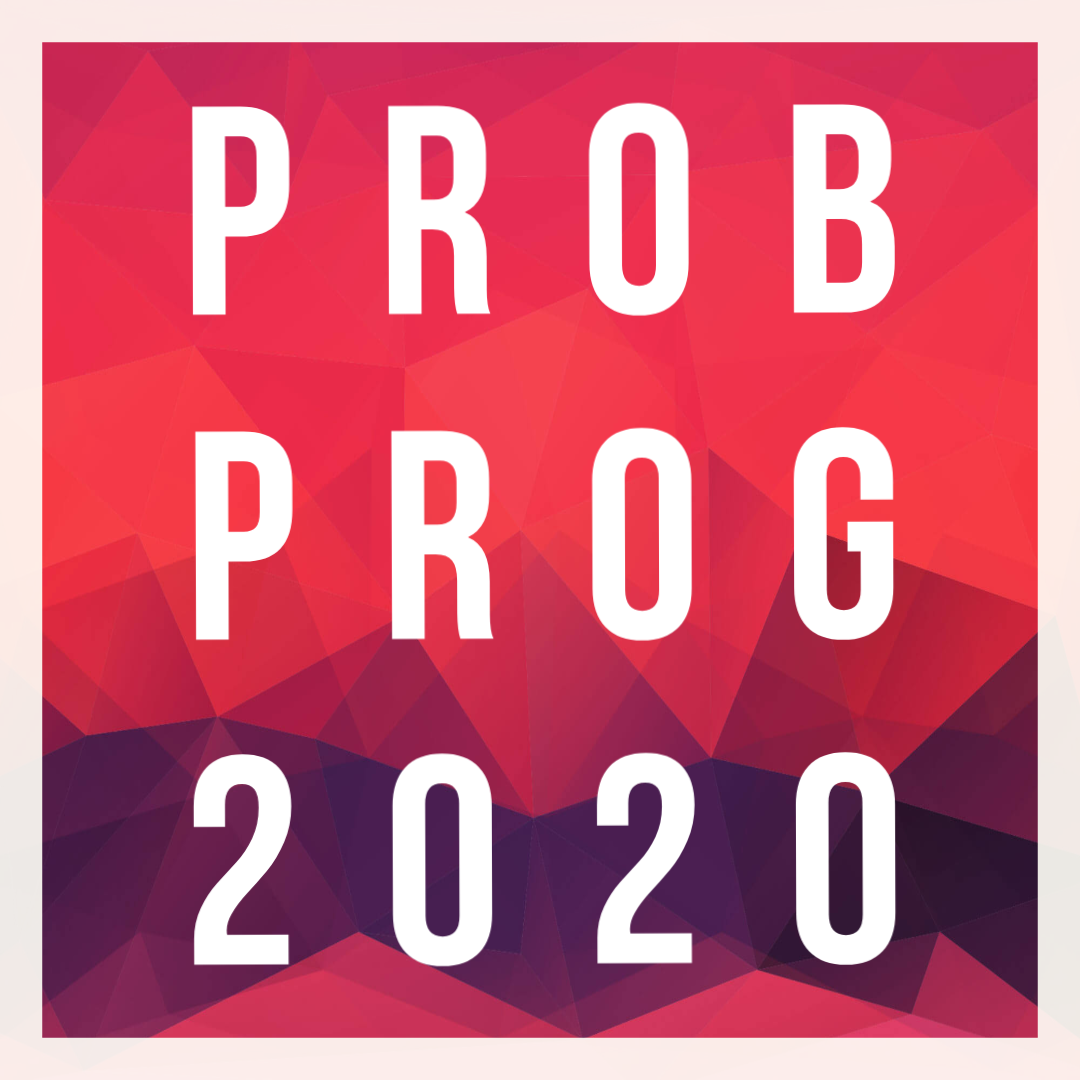
CANCELLED: ProbProg 2020
Description
Please note this event has been postponed to Fall 2020.
Probabilistic programming is an emergent field based on the idea that probabilistic models can be efficiently represented as executable code. This idea has enabled researchers to formalize, automate, and scale up many aspects of modeling and inference; to make modeling and inference accessible to a broader audience of developers and domain experts; and to develop new programmable AI systems that integrate modeling and inference approaches from multiple domains.
PROBPROG is the first international conference dedicated to probabilistic programming. PROBPROG includes presentations on basic research, applied research, open source, and the practice of probabilistic programming. PROBPROG attendees come from academia, industry, non-profits, and government. The conference aims to achieve three goals:
- Create a venue where researchers from multiple fields — e.g. programming languages, statistics, machine learning, and artificial intelligence — can meet, interact, and exchange ideas.
- Grow a diverse and inclusive probabilistic programming community, by actively seeking participation from under-represented groups, and providing networking opportunities, mentorship, and feedback to all members.
- Support the development of the practice of probabilistic programming, including open-source systems and real-world applications, and provide a bridge between the practice of probabilistic programming and basic research.
PROBPROG welcomes abstract submissions for contributed research presentations, demonstrations, open-source systems, participants in open discussions, and consideration for invited publication in an online journal. Submissions should indicate alignment with one or more of the following themes:
- Artificial and Natural Intelligence. Probabilistic programs and probabilistic programming technology for formulating and solving the core problems of intelligence, including research relevant for engineering artificial intelligence and for reverse-engineering natural intelligence. A central theme in this track is new AI architectures based on probabilistic programming that integrate statistical, symbolic, neural, Bayesian, and simulation-based approaches to knowledge representation and learning. Another central theme is proposals for learning probabilistic programs from data, and modeling high-level forms of human learning using probabilistic program synthesis. This track also includes research at the intersection of probabilistic programming and intelligence augmentation, collective intelligence, machine learning, and the development and analysis of intelligent infrastructure.
- Statistics and Data Analysis. Probabilistic programs and probabilistic programming technology for formulating and solving problems in statistics and data analysis. Topics include latent variable models, parameter estimation, automated data modeling, Bayesian inference, calibration, model checking, model criticism, visualization, and testing of statistical models and inference algorithms. This track also includes statistical applications and deployments of probabilistic programming for data analysis.
- Languages, Tools, and Systems. The design, implementation, and formal semantics of probabilistic programming languages and systems, including domain-specific and general-purpose languages, interpreters, compilers, probabilistic meta-programming techniques, probabilistic meta-programming languages, and runtime systems. This track also includes research on dynamic and static analysis of probabilistic programs, and empirical and theoretical study of the usability, performance, and accuracy of probabilistic programming languages and systems.
- The Practice of Probabilistic Programming. This track is centered on four themes: (i)probabilistic programs and systems based on probabilistic programming that solve problems in industry, government, philanthropic work, applied research, and teaching, as well as potential use cases for probabilistic programs or probabilistic programming technology in these areas; (ii) challenges that arise when using probabilistic programming in practice, including inspection, debugging, testing, and performance engineering; (iii)human-centric design of probabilistic programs and probabilistic programming technology; and (iv) probabilistic programming tools, probabilistic program analyses, probabilistic programming styles/workflows, probabilistic programming practices/guidelines/experience reports, and probabilistic programming environments with the potential to address issues faced by practitioners.
Additional Info
Call for Submissions
Deadline: Jan 10, 2020
The PROBPROG 2020 conference is seeking two kinds of submissions:
- Extended Abstracts: Authors may submit work in the form of an extended abstract of 2-6 pages for consideration for a poster presentation, talk, or full-length proceedings submission. Extended abstracts are intended as a mechanism for discussing work that may be preliminary, and for this reason are non-archival. Titles for accepted poster presentations and talks will be listed on the conference website. Our aim is to enable researchers to get feedback from the PROBPROG community that helps mature the research, strengthen the probabilistic programming content, and improve the chances of acceptance in top venues aligned with other fields.
- Syndicated Submissions: Authors may submit work that has been accepted for publication in another venue within the last 12 months for consideration as a poster presentation or talk. These submissions may be full-length and are also non-archival, but will be listed on the conference website.
Authors should indicate if they would like their submission to be considered for invitation by the online Probabilistic Programming journal.
Online Probabilistic Programming Journal
PROBPROG is a cross-disciplinary venue that aims to balance three goals:
Probabilistic programming conference papers are often accepted at top research conferences, e.g. NeurIPS, AISTATS, ICML, UAI, PLDI, and POPL. However, there is no existing venue for longer (10-25 page) papers, that may require detailed reviews by experts from multiple fields. In addition to novel contributions in the general domain of probabilistic programming, such papers may (i)present unifying perspectives on larger research directions in probabilistic programming; (ii)present key design insights and implementation details of important probabilistic programming systems; or (iii) present in-depth tutorials on techniques and applications that could be important to practitioners.
Probabilistic Programming is a new online journal, published concurrently with the PROBPROG conference. Probabilistic Programming aims to foster the development of probabilistic programming as an intellectual activity, and educate the growing community of probabilistic programming researchers and practitioners. This year, a subset of PROBPROG abstracts will be invited to be expanded into articles in the inaugural issue of Probabilistic Programming. Submissions should indicate if they would like to be considered for these invitations.

